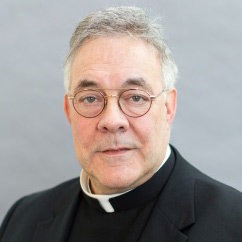I cannot permit the death of His Imperial and Royal Highness Otto von Habsburg at age 98 on July 4th to pass unnoticed. To look into his face was to gaze into the map of the 20th Century, and to hear him recount his ideas, insights and encounters was worth more than an entire course in European history in most universities.
Only slightly acquainted with the man (his father Emperor Karl was beatified by Pope John Paul II in 2004), I was struck not merely by his exhaustive knowledge of history, economics, culture, and languages (with whom else does one begin the conversation by being asked, “And in what language shall we converse?”); what is now most memorable about the man was his modesty and clear Christian faith, so apparent to anyone who views the video clip here.
The occasion for the speech was a Rome conference sponsored by Acton Institute and Istituto Acton on the topic of “Centesimus Annus and Deus Caritas Est” held at the Pontifical Gregorian University. Joining the Archduke and myself on the panel were papal biographer George Weigel and the French economist Jean Yves Naudet.
Otto von Habsburg’s lively presentation represents the best of Catholic “liberal’ thinking, integrating a sound economic sensibility with a clear moral commitment.
When von Habsburg’s mother Zita died in 1989 her body was brought in state to the Imperial crypt of the Habsburg dynasty at the Capuchin Church in Vienna. The scene was striking: As the bier waited at the entrance to the church, an attendant with staff in hand knocked at the door. From inside a friar, holding a large candle, asked who was seeking entrance. The attendant replied that it was Her Imperial Highness Zita Maria. The simple friar replied, “We do not know her.” The attendant knocked once again, and was again asked who seeks entrance. This time he replied, “Zita, a poor sinner,” at which reply the friar welcomed her into the church.
For all that Otto von Habsburg saw in his long and fruitful life the one and only thing that he, and we, can bring with us into eternity, is the plea for mercy at the feet of a merciful God.
Anima eius et animae omnium fidelium defunctorum per Dei misericordiam requiescant in pace.

